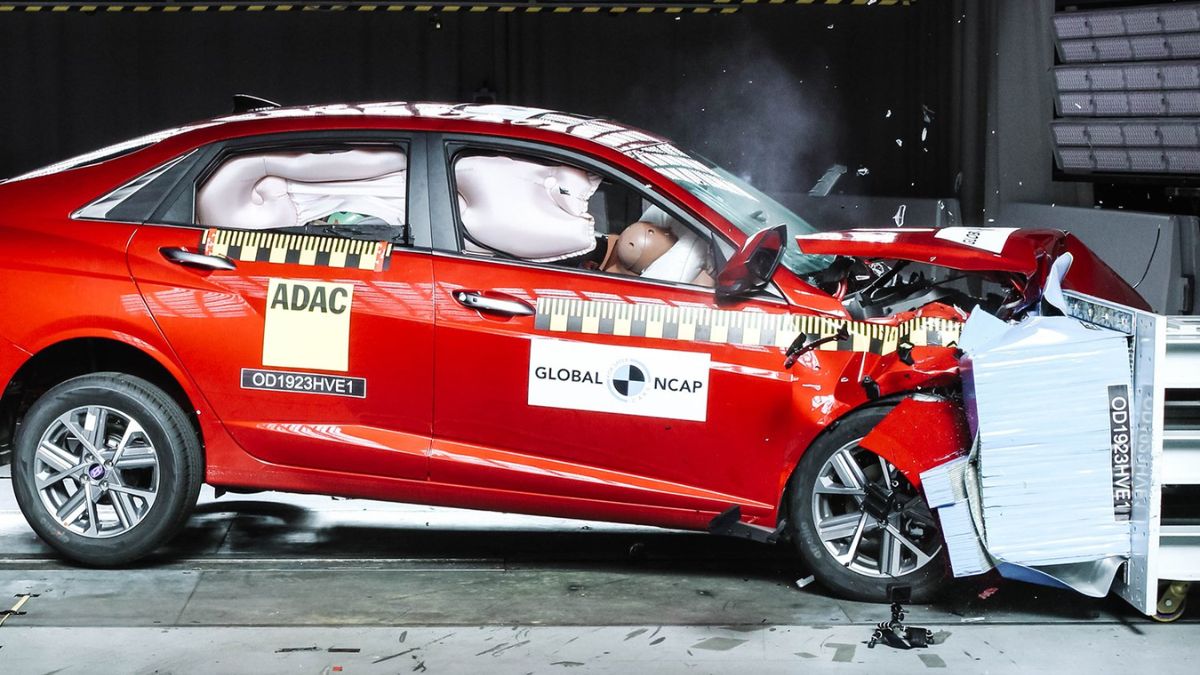- By Divanshi Sharma
- Fri, 06 Oct 2023 02:12 PM (IST)
- Source:JND
Safety has become extremely paramount in the automotive industry and buyers have become more cautious when it comes to choosing cars in terms of safety. Now, automobile manufacturers have been incorporating more safety features in vehicles than ever before. Cars now come equipped with some top-of-the-line safety features like multiple airbags, three-point seat belts, ISOFIX seats for children, traction control, anti-lock braking system, tyre-pressure monitoring system and various ADAS features that are now offered in almost every car in the Indian market. Global NCAP tests were introduced in India in 2014 to assess the safety of a new car that is launched in the Indian market, however, GNCAP’s tenure in India comes to an end as India has launched its own test to give safety ratings to cars, known as the Bharat NCAP.
Why GNCAP won’t be testing ‘Made-In-India’ cars anymore?
The Union Minister of Road, Transport and Highways, Nitin Gadkari recently launched the Bharat NCAP tests that came into effect from October 1. Bharat NCAP tests will be conducted under the same parameters as the Global NCAP, therefore eliminating the need of conducting GNCAP tests on Indian cars. Hyundai Verna recently scored a 5-star safety rating as per the GNCAP tests and was one of the last made-in-India cars to be tested under the GNCAP’s ‘Safer Cars For India’ campaign. Additionally, testing cars under the GNCAP resulted in increased development costs for car manufacturers in the country. The price of testing an automobile under the Bharat NCAP programme is around Rs 60 lakh. If the same test is conducted abroad, it costs around Rs 2.5 crore. The implementation of Bharat NCAP tests will result in helping manufacturers in cutting down that cost.
As per a report by TOI Auto, Puneet Anand, AVP & Vertical Head, Corporate Affairs Unit, Hyundai Motor India Limited said “We had submitted the Verna for GNCAP testing even before BNCAP norms came into effect from October 1. It has stood the crash tests and scored a 5-star rating. Now that BNCAP norms are in place, GNCAP will not be accepting any more cars from Indian automakers as the results would then clash.”
ALSO READ: Bharat NCAP vs Global NCAP: Know Key Differences Between Two Safety Rating Systems
What is Bharat NCAP?
With the introduction of the Bharat NCAP tests, India has become the fifth country in the world to have its own safety system to test cars in terms of safety. Bharat NCAP emblem and sticker will be present on cars with their safety rating score after clearing the test. Automobile manufacturers can voluntarily nominate their cars to be tested under the BNCAP protocols. BNCAP has already received requests for over 30 cars from different manufacturers to be tested. The vehicles will be given star ratings for how well it performed during the test in two different types of categories - Adult Occupants Protection (AOP) and Child Occupants Protection (COP). The Bharat NCAP programme will not just test ICE vehicles but will also test CNG and electric vehicles produced in India.

